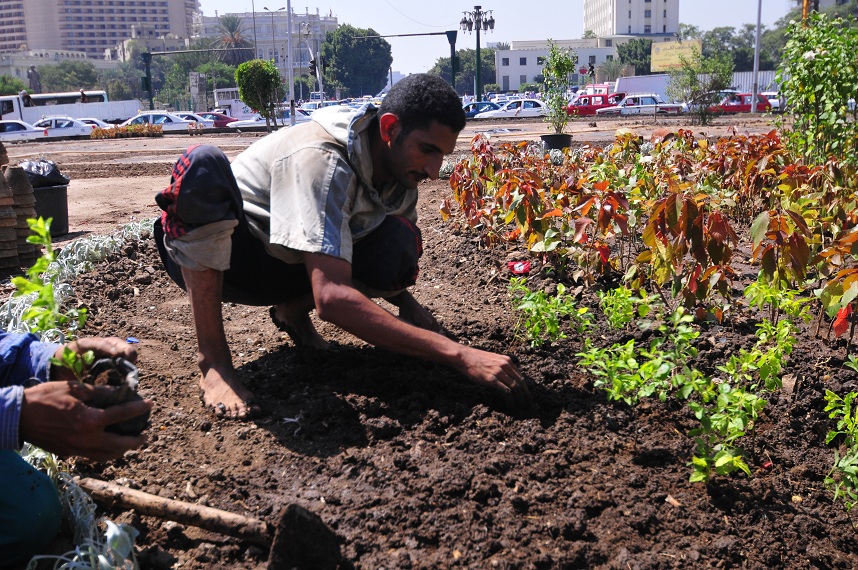CAIRO: Tamiflu, the most common effective swine flu drug, is only available at public hospitals, but numerous pharmacies sell it for LE 350-400 despite a government ban on the private sale of the drug.
The Ministry of Health has banned the private distribution or storage of Tamiflu, which is one of only two drugs that have been shown to respond to the H1N1 virus, reducing symptoms and accelerating recovery.
As of Wednesday evening, there were 29 confirmed cases of the H1N1 virus in Egypt.
The Ministry of Health currently stores 2.5 million doses of Tamiflu in hospitals throughout the country, and it has ordered another 2.5 million doses from Fritz Hoffman-La Roche, the Swiss health-care company that produces the drug.
The five million doses would surpass the World Health Organization’s recommendation that nations store enough for 5 percent of the population.
“It’s now been distributed and stocked at every single hospital in every single governorate in Egypt, said Ministry of Health spokesperson Abdel-Rahman Shahin.
Egypt has been storing the drug since the 2006 outbreak of avian flu. A dosage, which includes 10 pills taken twice daily, costs the government ?12, according to Shahin, a fraction of the private cost that can exceed ?100.
Tamiflu is available by prescription in most countries, where it has often been cleared off store shelves by concerned consumers seeking personal stocks.
Shahin said that the Ministry of Health does not allow the private sale of Tamiflu in order to avoid the abuse or misuse of the drug. But he acknowledged what he called a “black market, in which some people who can afford the private costs of the drug are obtaining it for personal storage.
As a result, ministry officials are checking up on pharmacies, said Shahin.
This Daily News Egypt reporter was offered full doses of Tamiflu at several pharmacies, for prices ranging from LE 350 to LE 400. The drug is also available online.
Pharmacists’ Syndicate Secretary General Dr Mahmoud Abdel Maqsoud said the government policy prohibiting the private sale of Tamiflu was in-line with WHO recommendations. He said that private sales of the medication were unnecessary given the public supply, though he acknowledged that it does continue to be sold privately.
At pharmacies in the neighborhood of the American University in Cairo’s Zamelek dormitory, where seven students tested positive for H1N1 virus last week, concerned customers are asking for the drug.
Mahy Sadik said that at the pharmacy where she works, 10 people a day inquire about the medication. That pharmacy does not provide the medication.
“I just explain the idea of Tamiflu, said Sadik, who noted that based on more recent cases, the virus had proven to be less serious than many had feared. “It’s a weak virus, they don’t have to panic.
Pharmacist Rassem Nassief said that he was not concerned that he cannot provide the medication to customers. Tamiflu has “no need to be in the private pharmacy, he said, because if someone is infected, they are brought immediately to the hospital.
Another pharmacist at the Al-Hakeem Pharmacy in Downtown Cairo said he would sell the drug if the Ministry of Health provided greater access.
Pharmacists that were not selling Tamiflu said they would contact a hospital in the case of infection or possible infection, but are otherwise recommending more simple precautions such as antibacterial soap, hand sanitizers and tissues, all of which are subject of increasing demand.
Tamiflu, and the less common Relenza drug which is taken in the form of a gas, are antiviral drugs that prevent the spread of the virus within the body. They must be taken within 48 hours of the development of symptoms to be effective.
Though they are not vaccines, Tamiflu and its counterpart have also been shown to be prophylactic, reducing the chances of infection. But world authorities warn that the virus can mutate into a drug resistant strain, and they have cautioned against unnecessary preventive measures.
During the world outbreak of avian flu, there were several reported cases worldwide of a mutated strain that did not respond to Tamiflu.
Ministry of Health policy avoids using the drug as a prophylactic. “This will cause serious problems, said Shahin.
Only confirmed cases and those in close contact with the patients are provided Tamiflu.
At the quarantined AUC dorm, the Ministry of Health provided all inhabitants with half of the regular dosage as a preventive measure, citing World Health Organization guidelines.
“It’s also a preventive treatment for the high-risk people, said Dr Suzan Mitsen Fouaz, the AUC physician in charge the Zamalek dorm.
Fouaz said that she noticed few side effects beyond the possibly unrelated gastric troubles of some students. But she said she was concerned that if someone taking the preventive dose were to be infected in the future, there is a possibility that the drug will not be as effective for them.
“Because we were under high exposure, we had to take it, she said.


